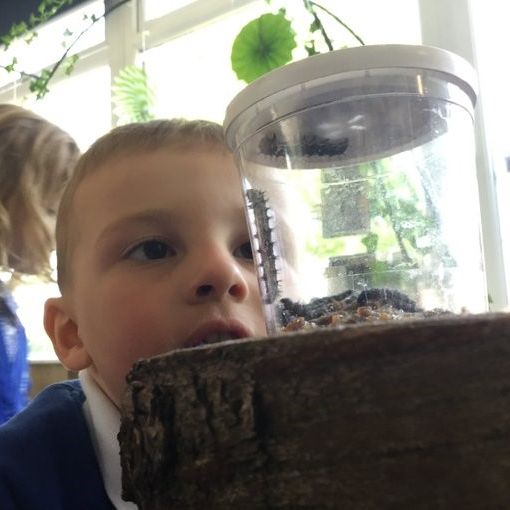At Meadowbank we believe that every child deserves the best possible start in life and the support that enables them to fulfil their potential. Children develop quickly in the early years and a child’s experiences between birth and age five have a major impact on their future life chances. A secure, safe and happy childhood is important in its own right. Good parenting and high quality early learning together provide the foundation children need to make the most of their abilities and talents as they grow up.
The Statutory Framework for Early Years Foundation Stage (EYFS), which became effective from September 2021, sets the standards for children from birth to five, that all early years providers must meet to ensure that children learn and develop well and are kept healthy and safe. It promotes teaching and learning to ensure children’s ‘school readiness’ and gives children the broad range of knowledge and skills that provide the right foundation for good future progress through school and life.
The four guiding principles shape practice in our Foundation Stage.
These are:
A Unique Child.
Every child is a unique child, who is constantly learning and can be resilient, capable, confident and self-assured.
All children and their families are valued within Meadowbank Primary school. We believe that children should be treated as individuals but they should have equal access to the EYFS curriculum. In our Foundation Stage give our children every opportunity to achieve their best. We help them do this by planning to meet the needs of both boys and girls, children with special educational needs, children who are more able, children with disabilities, children from all cultural backgrounds, children from different ethnic groups, and those from diverse linguistic backgrounds. We strongly believe that early identification of special needs is crucial in enabling staff to support the development of each child and fully meet their needs. Concerns are always discussed with parents/carers at an early stage in an open, honest and sensitive manner and we will always seek their support and involvement. The school’s Special Education Needs and Disabilities Co-ordinator (SENDCo) is responsible for providing additional information and advice to the Foundation Stage Team and parents, and for arranging external intervention and support where necessary. For further information see our Inclusion and Special Educational Needs Policies.
Positive Relationships.
Children learn to be strong and independent from a base of loving and secure relationships with parents and/or a key person.
In our Foundation Stage we recognise that children learn to be strong and independent from secure relationships. We aim to develop caring, respectful and professional relationships with the children and their families. We recognise that parents/carers are the child’s first and most enduring educators. When parents/carers and practitioners work together in early years settings, the results have a positive impact on the child’s development. We feel a successful partnership needs to be a two-way flow of information, knowledge and expertise and so we aim to provide a variety of opportunities to support this.
Enabling Environments.
Children learn well in enabling environments, in which their experiences respond to their individual needs and there is a strong partnership between practitioners and parents/carers.
In our Foundation Stage, we recognise that the environment plays a key role in supporting and extending the children’s development. We aim to create a safe, meaningful and purposeful learning environment which will encourage children to explore, investigate and learn through first-hand experience. We also aim to make it a place where children feel secure and confident, and are challenged to develop their independence. Opportunities and experiences are planned for both the inside and outside environment. Children have the freedom to move between the indoor and outdoor classroom throughout the school day. Children learn and develop well in enabling environments with teaching and support from adults, who respond to their individual interests and needs and help them to build their learning over time.
Learning and Development.
Children learn and develop in different ways and at different rates.
There are seven areas of learning and development that shape the educational programmes in early years settings. All areas of learning and development are important and inter-connected.
Three areas are particularly important for building a foundation for igniting children’s curiosity and enthusiasm for learning, forming relationships and thriving.
These are the prime areas:
• Communication and Language
• Physical Development
• Personal, Social and Emotional Development
These are the specific our specific areas, through which the three prime areas are strengthened and applied.
The specific areas are:
• Literacy
• Mathematics
• Understanding the world
• Expressive Arts and Design
In our Foundation Stage we consider the individual needs, interests, and development of each child in our care, and use this information to plan a challenging and enjoyable experiences for each child in all areas of learning and development. When planning and guiding what children learn, we reflect on the different rates at which children are developing and adjust our practice appropriately. The way in which children engage with other people and their environment- playing and exploring, active learning and creating and thinking critically- underpin learning and development across all areas and support children to remain effective and motivated learners.

